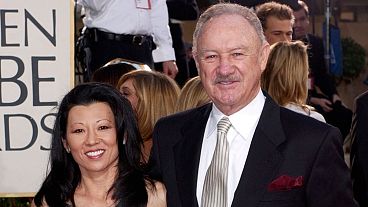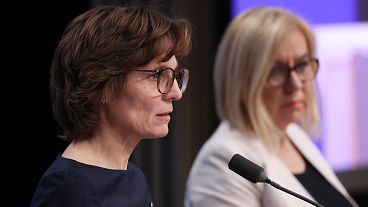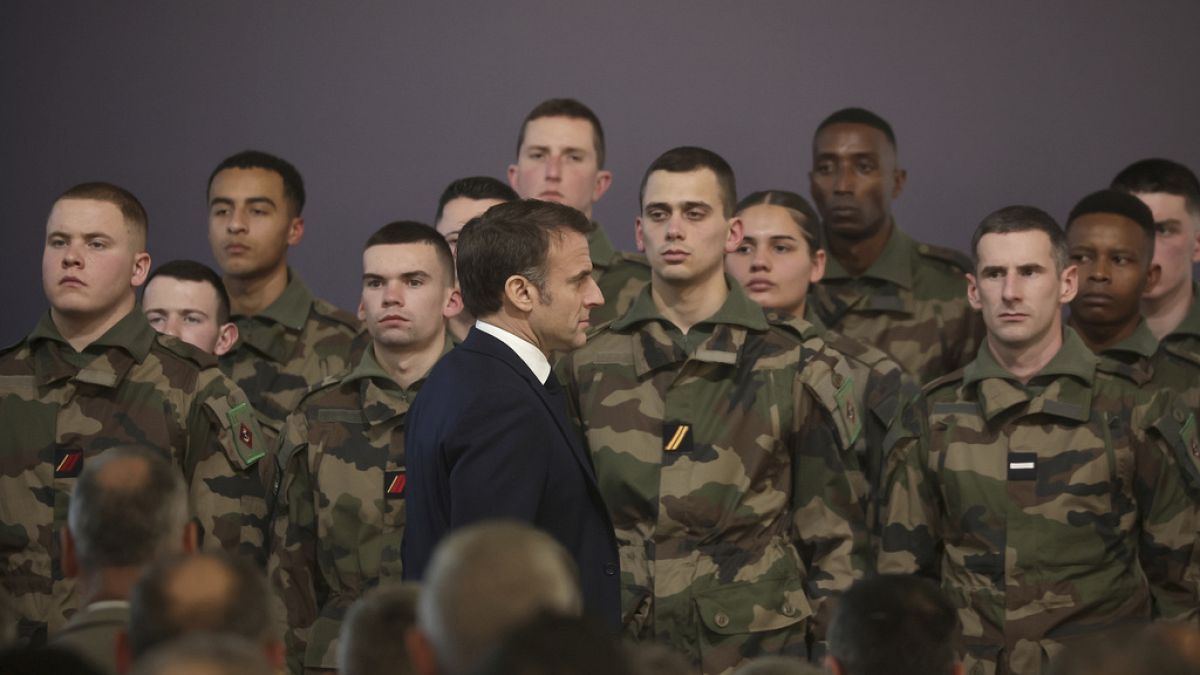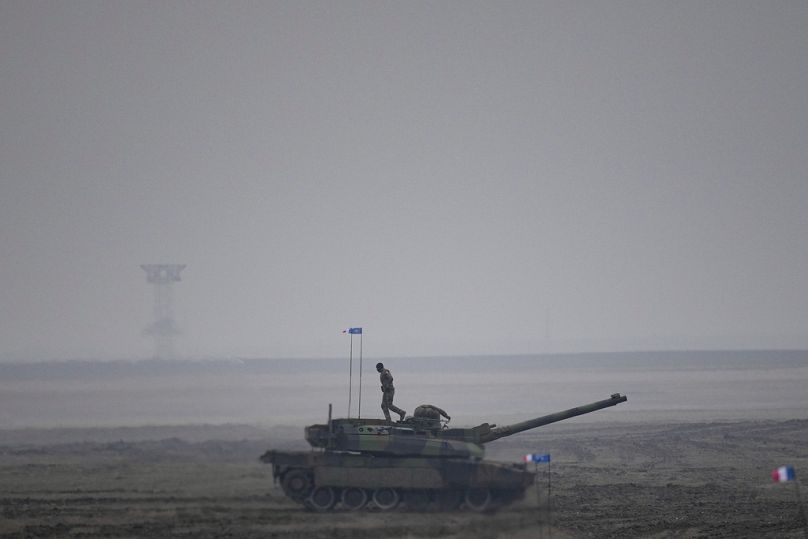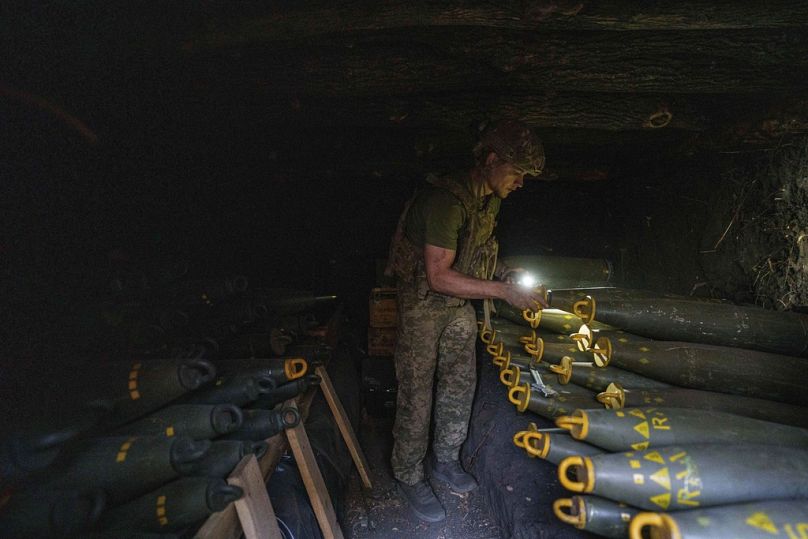As the EU faces increasing security challenges, questions have arisen over whether France has the military capability to lead a joint defence initiative.
French President Emmanuel Macron has positioned France at the heart of European rearmament initiatives, following signs of a rapprochement between the US and Russia.
With the US scaling back its military protection of Europe and Russia posing a growing threat to the continent's security, the EU is pushing for increased spending and the pooling of resources on joint defence projects among its members.
However, despite Macron's ambitions, there are questions over whether France's army — which is the seventh strongest globally, and the best in the EU, according to an annual ranking by Global Firepower, has what it takes to lead this initiative.
Strength on paper, shortages in reality
Since his election in 2017, Macron has hugely increased France's spending on defence.
The country's 2019-2025 Military Programming Act (LPM) allocated €295 billion to defence. The latest 2024-2030 LPM raised that figure to €413bn – a 40% increase.
Despite these investments, France is still playing catch up.
Senator Cédric Perrin, a member of the Republican party and chairman of the Senate’s Defence Committee, acknowledged progress but said that funding remains "insufficient to meet the new challenges", such as Russia's full-scale invasion of Ukraine in 2022.
The country's military force consists of around 200,000 active soldiers and 44,000 reservists, according to Global Firepower.
The French army boasts 225 Leclerc battle tanks and 79 Caesar cannons. Its navy operates a nuclear-powered aircraft carrier, four nuclear ballistic missile submarines, and 15 frigates, while the air force commands 197 fighter jets.
The country also maintains an estimated 290 nuclear warheads as part of its deterrence strategy.
But several concerns remain. For example, ammunition stockpiles are extremely low.
France's goal in 2024 was to produce 100,000 155-mm shells per year, a NATO-standard artillery shell calibre that is used in many field guns and howitzers.
It's a vast improvement from the 6,000 produced annually between 2012 and 2017. But with the Ukrainian army firing 7,000 shells per day, France still has a long way to go.
A 2023 report by France’s lower house of parliament revealed that stockpiles are at an all-time low and would not last beyond a few weeks in a prolonged conflict.
The paradox of arms exports
France has a robust defence industrial complex and is the world’s second-largest arms exporter, found the Stockholm International Peace Research Institute's latest analysis.
But it’s important to distinguish French arms sales from the military capabilities of the national army, according to Emmanuel Dupuy, a military analyst and president of the Institute for European Perspective and Security Studies (IPSE).
Dupuy argued that France's military supply chain is flawed.
"We’ve become the leading European arms exporter by selling Rafale fighter jets and Caesar cannons, yet we are short of ammunition because we no longer have the capacity to manufacture it in France," he told Euronews.
Perrin said that while France manufactured a lot of good-quality equipment, that didn't mean that the country bought a lot of such gear.
Dupuy agreed, saying that "perhaps we should start from the principle that we can't be an exporting power if we don't want to supply ourselves with the materials we need for our own security".
France’s military-industrial complex also relies on international suppliers for critical materials. For instance, French ammunition manufacturers import gunpowder from Australia, according to Dupuy.
Last week, French Armed Forces Minister Sébastien Lecornu and Finance Minister Eric Lombard inaugurated a new gunpowder production line by Eurenco, a powders and explosives company.
The factory will produce some 1,200 tonnes of gunpowder pellets a year which would feed into about 100,000 artillery shells, intended for Caesar cannons deployed in Ukraine, among other countries.
What is the French army missing?
Despite its military assets, France lags in several critical areas, the experts warned.
"We need to invest in force projection capabilities — heavy transport aircraft to deploy a large amount of troops and armoured vehicles abroad," Dupuy said.
Another pressing gap involves developing more drones, which have transformed the way war is fought, especially in Ukraine.
One particular area of concern is surveillance.
In an era of cyber warfare and electronic surveillance, France must strengthen its ability to detect and respond to threats in real-time, according to Dupuy.
He also said that France and its EU allies must break free from reliance on US-built Patriot missile systems.
"We absolutely must no longer depend on Patriot anti-aircraft systems but develop our own European equivalents," he explained.
Lack of EU cooperation
France’s military doctrine has traditionally focused on expeditionary warfare rather than large-scale direct conflicts.
Perrin noted that France’s forces were established "to intervene anywhere," but said that their "fragmented" nature means that they are limited in scale.
He insisted that France, like other European nations, can only engage in a major conflict "in coalition with NATO and EU allies".
However, European cooperation in the weapons industry remains a work in progress.
Dupuy said the continent must improve interoperability when it comes to procurement.
"We need fewer different types of equipment within European armed forces — perhaps a joint European aircraft, rather than competing national projects," he added.
However, Perrin said he is cautiously optimistic about France's new military initiative.
"We’re heading in the right direction. The question now is to find the budget to place the orders," he said.
France's government aims to raise €5 billion in additional public and private funding for the defence sector, the finance ministry announced last week.
Yet the strain on France's public finances narrow its options to boost defence spending. Macron aims to raise the army's budget from 2% of the country's GDP to 3 to 3.5% over the next few years.

